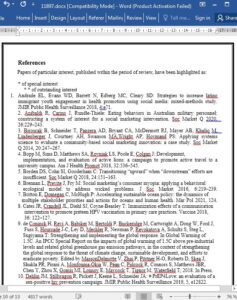Abstract
Most people recognise that everyday life is not the same as it was with climate change, a pandemic, inequalities and more. It is a world increasingly shaped by collective as well as individual choices, decisions and behaviours. Ultimately, in this complex world, the call to action is large-scale behaviour change. In response, social marketing with its behaviour change prime directive has been expanding in experience, evidence, theories and toolkits. Social marketing critically examines the interface of human and natural systems and their interconnected dynamic forces as a powerful means of influencing behaviours for the accorded transformation and betterment of individuals, communities, society and the planet. In pursuit of green deal innovations, critical trends in social marketing embrace systems science, stakeholder engagement and digital technologies.
Introduction
Human behaviour accounts for approximately 1.0�C of global warming above preindustrial levels and calls for wide-scale behaviour change [9]. With human consumption of raw natural resources at the centre of the global-to-local green deals, systemic behaviour change and the rapid adoption of low-carbon lifestyles are critical enabling factors and therefore an ideal place for implementable interventions [32,29]. However, although it is understood by scientists and policy makers that education and messaging have a role to play in creating sustainable consumption and a carbon-neutral world, communication alone does not result in people changing their behaviour, individually or collectively [5,19].









